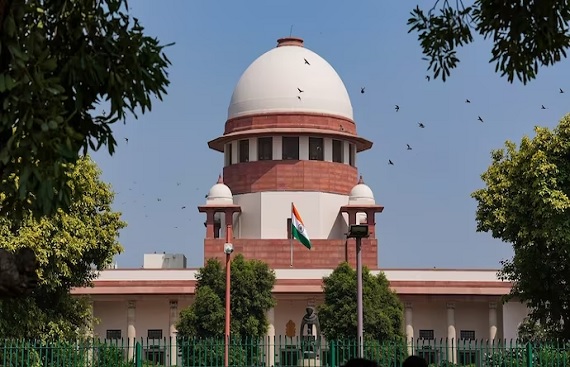Supreme Court Rejects SIT Probe in Adani-Hindenburg Case, Sets 3-Month SEBI Deadline
By
siliconindia | Thursday, 04 January 2024, 05:31 Hrs

The Supreme Court has dismissed the OCCRP report concerning the Adani group, asserting that it cannot be considered as a basis to question the SEBI investigation. The court concluded that there is no justification to shift the inquiry from SEBI to SIT. Chief Justice D Y Chandrachud, along with Justices J B Pardiwala and Manoj Misra, delivered the verdict on multiple petitions related to the Adani-Hindenburg dispute. This case involves accusations of stock price manipulation against the Indian corporate giant.
"The reliance on OCCPR report is rejected and reliance on a third party organization report without any verification cannot be relied upon as a proof", the SC bench noted, reported Bar and Bench. While reading the conclusions, the CJI said, "The power of this court to enter the regulatory framework of SEBI is limited. No valid grounds were raised to direct SEBI to revoke its amendments on FPI and LODR regulations. The regulations do not suffer from any infirmities".
Additionally, the Supreme Court dismissed the contentions raised by the petitioners concerning the Expert Committee members' potential conflict of interest. Chief Justice Chandrachu mentioned that both the Center and SEBI should consider the committee's recommendations to enhance the protection of Indian investors' interests. "The Govt of India and the Sebi to look into if there is any infraction of law by the Hindenburg report on short selling and if so, take action in accordance with law", the CJI said.
The bench had reserved a verdict on the PILs on November 24 last year that were filed by lawyers Vishal Tiwari, M L Sharma and Congress leaders Jaya Thakur, and Anamika Jaiswal, reported. Addressing the issue of transferring the case, the CJI said the power to transfer investigation must be exercised in exceptional circumstances. "Such powers cannot be exercised in the absence of cogent justifications", he added.
He also said that relying on newspaper reports and third-party organizations to question the statutory regulator does not inspire confidence. "They can be treated as inputs but not conclusive evidence to doubt SEBI probe", he was quoted as saying. The bench further noted that SEBI had used the term opaque to describe the FPI which was misconstrued by the expert committee. "SEBI says FPI regulations did not prohibit opaque structure and could in fact locate the beneficial owners. Mandatory upfront disclosures meant that opaque structure was omitted in 2019 we find merit in sebi arguments and do not find a reason to interfere in delegatory legislative powers. The current regulations are not tainted with illegality", it added.
The bench said the petitioner has not challenged the vires of regulations but there is a regulatory failure and thus it is a prayer "which is unknown to this court and this is an afterthought based on value judgment and is thus rejected". "This court cannot take over the role of the delegatory legislation of SEBI. This court has the power under article 32 and 142 to transfer the probe to CBI etc but such powers can only be used sparingly and this court will not ordinarily supplant this role and the petitioners must put forth strong evidence to show that the investigative agency acted in a biased manner", the bench said while rejecting the pleas.
"PIL as a tool was invented so that legitimate causes are brought to this court by ordinary citizens however plea with unsubstantiated reports should not be pursued and thus members of the bar must be conscious of this", the bench concluded. Meanwhile, advocate and petitioner Vishal Tiwari said, "The Supreme Court has very clearly said that whatever report, given by any third party, cannot be taken as conclusive proof and there must be evidence that may support (the case)".
